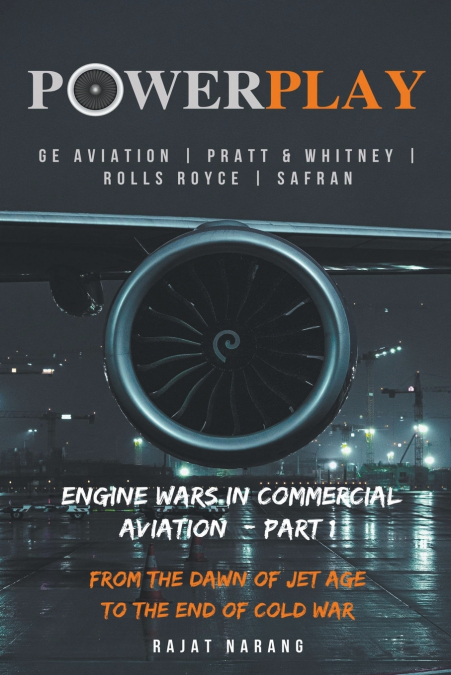
Rajat Narang
When the Wright Brothers dreamed of flying like birds; a powered, heavier-than-air flying machine, known as the Wright Flyer, powered by a 12 Hp gasoline engine made of Aluminum block; effectively enabled them to realize their dream in 1903 while also ushering in the ’Age of Flight’ for humans. That rudimentary machine & engine paved the way for the development of larger piston engines & propeller powered fighters which proved to be instrumental during the World War I & II and later gave way to the emergence of turbojets (during the final years of World War II) and ultimately had their metamorphosis into turbofans by the middle of the last century.The initial human quest to fly like birds, thus, quickly & effectively turned into the need to move from Point A to Point B efficiently & in the quickest possible way, via air, especially in the post war-era. It got a tremendous impetus following the onset of the Jet Age in the 1950s propelled by the turbofans powered commercial jets. However, the jet age, too, like earlier, brought with it multiple, high stakes Technology Wars and R&D Dogfights for market domination & supremacy fought bitterly among the major aircraft OEMs as well as Engine manufacturers. These contests effectively translated into lasting victories, leading to establishment of duly sustained market dynasties for some, while some others lost their early-mover advantages, way & initial market successes completely by failing to capitalize on them owing to parallaxes, average strategic choices & moves which were further accentuated by unfavorable market forces & headwinds and some real,outright blunders.This is the analysis-based story of those complex strategy choices, decisions & moves made by leading turbofan engine OEMs of the era (since the dawn of the jet age) amid the heat of the raging battles and the myopic errors caused by the prevailing fog-of-war and their eventual outcomes & repercussions. The analysis also factors in the critical & pivotal role played by the prevailing market forces, macroeconomic trends and lastly chance which collectively proved to be the presiding, ultimate judges with their judgments & verdicts ultimately determining the fates as well as destinies of engine programs as well as the OEMs producing them.It is also the story of path-breaking innovations, products & technologies, some of which, aided by the prevailing favorable market forces, disrupted the commercial aviation market fundamentally while carving a niche for themselves initially & ultimately going on to virtual market dominance. However, there were some others as well, which, despite of being disruptive, were way ahead of their time and were ultimately discarded by the market forces owing to being out of alignment with current market realities of the time only to re-emerge, reincarnated in an entirely new form now, to solve complex sustainability challenges and to shape a new, sustainable future for commercial aviation, chosen to be resurrected, ironically, by the very same market forces which had once sealed their fates…Part 1 of the two-part book series analyzes the Aviation era starting with the Dawn of Jet Age to the End of Cold War while Part 2’s coverage ranges from the Onset of the Globalization Era to the Post-Pandemic Revenant.Note: It is not a technical book and traces, analyzes & chronicles the evolutionary journey of aircraft engines in commercial aviation (since the dawn of the jet age) from the market side with the strategy perspective presented in a highly comprehensible, simple to understand language as well as manner.